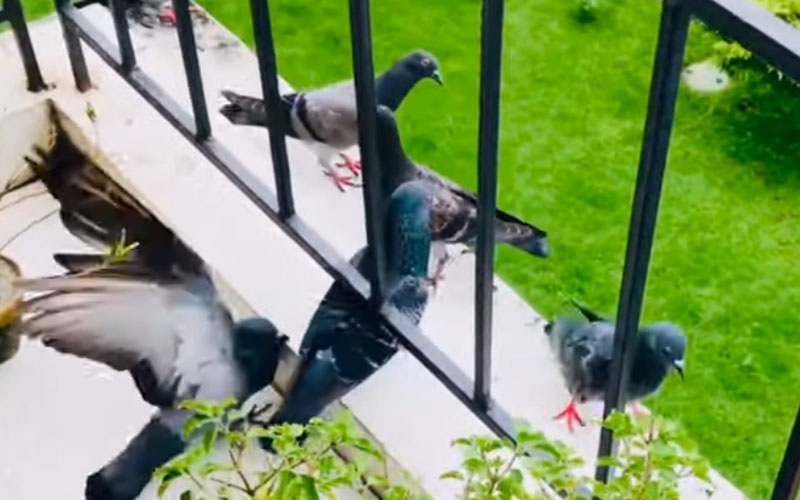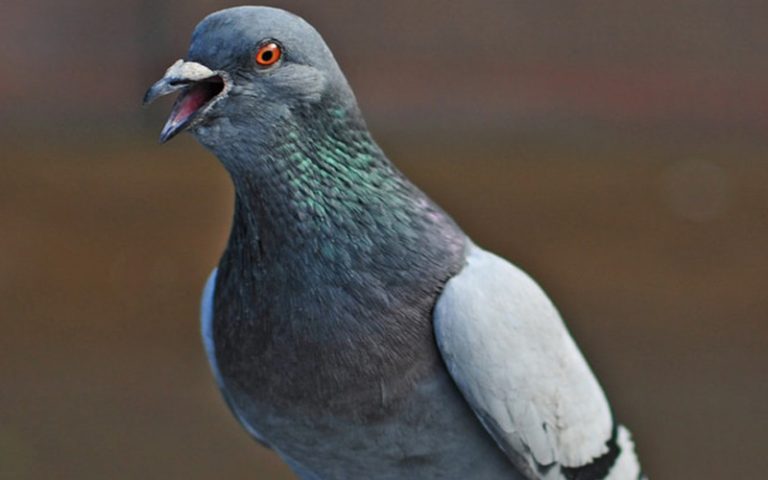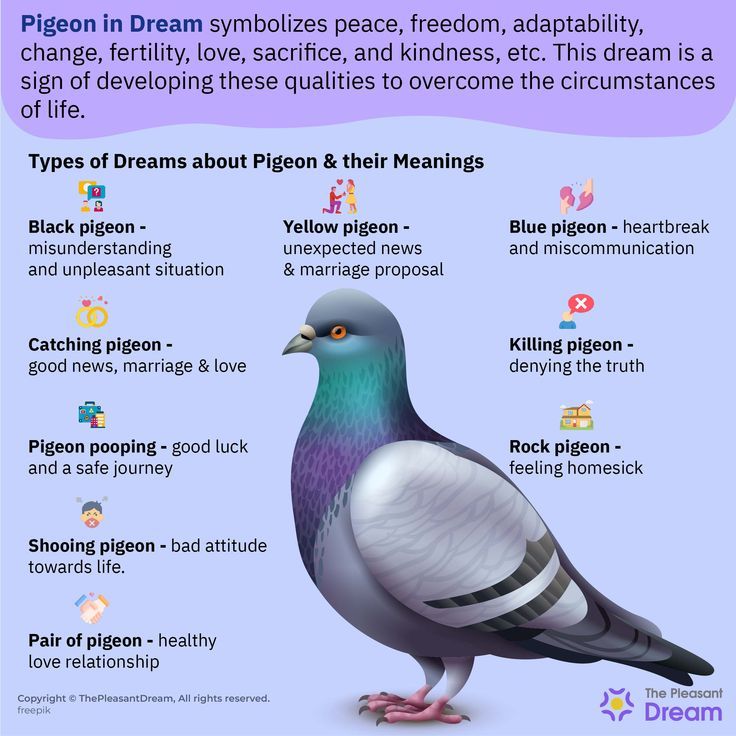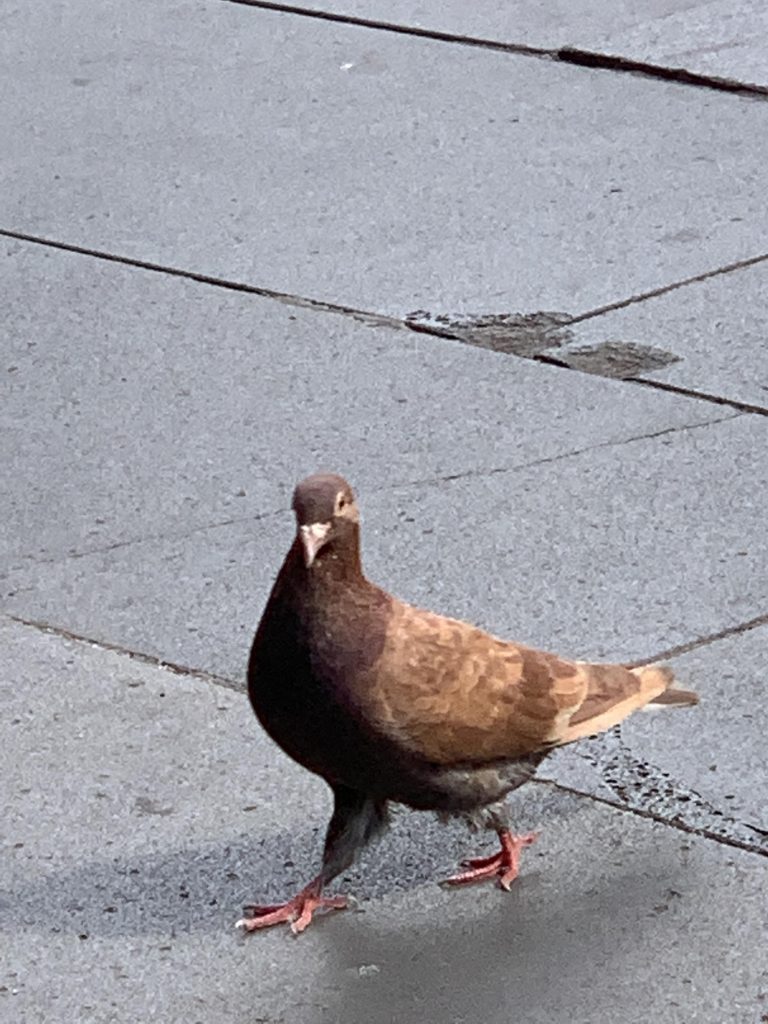Why Do Pigeons Keep Coming Back To My House?
Pigeons return to your house because they find it a comfy spot with food and shelter. They’re drawn to the familiar surroundings and the consistent availability of snacks. Pigeons are creatures of habit, and if they’ve found a reliable source of nourishment and a safe place to rest, they’ll likely keep coming back.
What Does It Mean If Pigeon Comes to Your House?
If a pigeon visits your house, it likely means it’s seeking food, water, or a safe spot. Pigeons are opportunistic feeders, so they might be attracted by crumbs or bird feed in your vicinity. They’re also known to return to places where they find a reliable source of nourishment. Additionally, pigeons may be looking for a place to rest or build a nest, especially during breeding seasons.
Why Do Pigeons Keep Coming Back to My House?
If you’ve noticed a persistent presence of pigeons around your house, there could be several reasons why pigeons keep coming back to my house.
1. Food Source Attraction
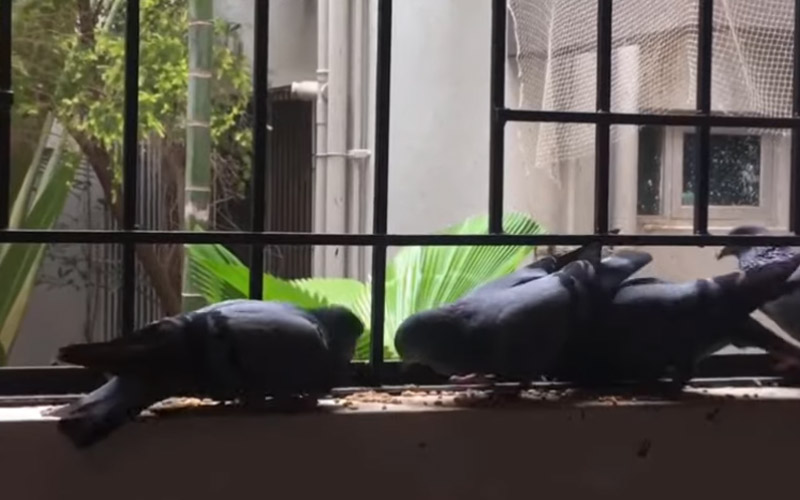
Pigeons are opportunistic feeders, and if they’ve discovered a reliable food source near your house, they will keep coming back for more. These birds have a keen sense of sight, and they can easily spot potential food from afar. If you often leave scraps or bird feed in your yard, pigeons have likely identified your home as a reliable spot for a quick and easy meal.
2. Shelter and Nesting Opportunities
Pigeons are known to seek out safe and sheltered places for nesting and roosting. If your house provides convenient nooks, ledges, or other secluded spots, pigeons may find it to be an ideal location for building their nests. The eaves, window ledges, or even balcony railings can serve as potential nesting sites for these birds.
3. Water Source Availability
Like any living being, pigeons require water for hydration. If your house provides a readily available water source, pigeons may be drawn to it. This could include open containers, birdbaths, or even leaks that create puddles. Pigeons will often return to locations where they can easily access water.
4. Geographical Familiarity
Pigeons are renowned for their remarkable homing abilities, and they tend to establish a geographical familiarity with their surroundings. If pigeons have found your house to be a convenient and familiar landmark during their flights, they may naturally return to the area as part of their established routes.
5. Social Behavior and Flocking Instincts
Pigeons are highly social birds that thrive in flocks. If a few pigeons have discovered a comfortable spot around your house, others may follow suit, driven by their instinct to gather in groups. This social behavior can contribute to a continuous influx of pigeons to your property.
How Can I Prevent Pigeons from Nesting On My Property?
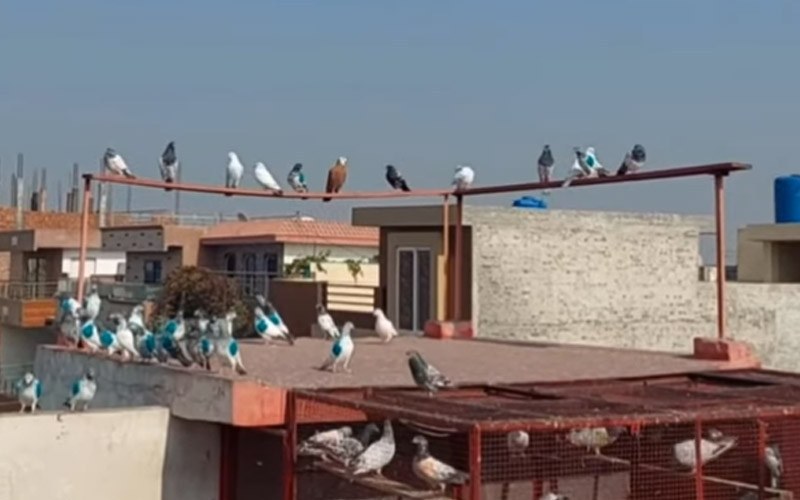
Dealing with pigeons nesting on your property can be a persistent challenge. These birds not only create a mess but can also pose health risks. Fortunately, there are effective and humane ways to deter pigeons from making your property their nesting ground.
1. Block Entry Points
Pigeons are resourceful creatures that can find their way into small openings and gaps around your property. Take a proactive approach by identifying and blocking potential entry points.
Start with a thorough inspection of your building, paying attention to areas like vents, chimneys, and eaves. Use wire mesh or bird netting to cover these openings, preventing pigeons from accessing nesting spots.
Seal gaps and crevices using weather-resistant materials like silicone or caulk. Ensure that windows and doors are properly sealed to eliminate any inviting nooks for pigeons.
2. Install Pigeon Spikes
Pigeon spikes are an effective physical deterrent that prevents birds from landing and roosting on ledges, sills, and other flat surfaces. These simple yet ingenious devices consist of narrow, pointed spikes that make it uncomfortable for pigeons to perch.
Available in various sizes and materials, pigeon spikes are easy to install and can be affixed to ledges, windowsills, and roof edges. Install the spikes in areas where pigeons are likely to roost, ensuring that the entire surface is covered.
Regularly inspect and clean the spikes to maintain their effectiveness. Pigeon spikes are humane and do not harm the birds; instead, they encourage them to seek alternative, more comfortable locations.
3. Employ Reflective Objects
Pigeons are easily startled by movement and reflections. Utilize this aversion by incorporating reflective objects around your property. Hang reflective tape or shiny objects like CDs in areas where pigeons tend to gather.
The movement and reflective surfaces create an environment that pigeons find unsettling, encouraging them to relocate. Consider installing scare balloons or predator decoys with reflective surfaces.
These visual deterrents mimic the presence of predators, further dissuading pigeons from settling in the vicinity. Ensure that these objects are strategically placed and periodically moved to maintain their effectiveness.
4. Use Bird-Repellent Gels
Bird-repellent gels are another practical solution to deter pigeons from nesting on your property. These gels create a sticky surface that pigeons find uncomfortable to perch on.
Apply the gel on ledges, window sills, and other flat surfaces where pigeons are likely to roost. Bird-repellent gels are safe for both birds and humans, providing a long-lasting deterrent that withstands various weather conditions.
Regularly inspect and reapply the gel as needed, especially after heavy rain or extreme weather, to ensure its continued effectiveness. This method offers a hassle-free way to discourage pigeons from choosing your property as their nesting site.
5. Implement Humane Traps
Humane traps provide a catch-and-release solution for managing pigeon populations on your property. These traps are designed to capture pigeons without causing harm, allowing you to relocate them to a more suitable environment.
Place the traps in areas frequented by pigeons, such as roosting spots or feeding areas. Check the traps regularly and release captured pigeons far away from your property, ensuring they won’t return.
It’s essential to adhere to local regulations and guidelines when using traps to avoid any legal issues. While this method requires patience and consistency, it offers a compassionate approach to managing pigeon-related issues on your property.
What Does It Mean When a Pigeon Won’t Leave Your House?
If a pigeon refuses to depart from your home, it likely signifies that the bird has found the surroundings comfortable or perceives it as a haven. Pigeons are attracted to familiar and secure spaces for nesting and roosting. They might be drawn to the warmth, shelter, or a potential food source.

